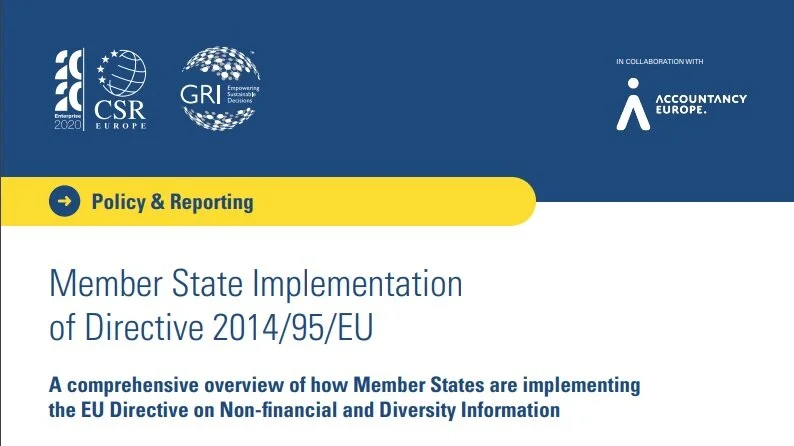Our Network's Feedback on the Renewed Sustainable Finance Strategy
Looking ahead at the final draft of the Renewed Sustainable Finance Strategy, the CSR Europe network highlights three key elements to focus on: policy coherence; integration of compliance with capacity building; just transition.
The Renewed Sustainable Finance Strategy will drive the ESG investment agenda of the European institutions in the coming years. As a roadmap to manage and integrate climate and environmental risks into our financial system, it will be crucial in the creation of common international and European frameworks and standards such as the EU Taxonomy.
Here are the three key elements that our network believes should be taken into account by the institutions in drafting the final document:
STRONG POLICY COHERENCE
The Commission should ensure strong policy coherence between the future Sustainable Finance Strategy and other forthcoming legislations and initiatives, such as the EU Taxonomy, the review of the Non-Financial Reporting Directive, the Due Diligence Law, and the announced initiative on Sustainable Corporate Governance.
SMART INTEGRATED APPROACH TO BETTER COUPLING COMPLIANCE AND CAPACITY BUILDING
The Renewed Sustainable Finance Strategy should include some accompanying measures and capacity building activities to equip:
company and investors in the integration of sustainability in the core business and across value chains as well as to increase the peer to peer dialogue between them
industry sectors and federations with a clear understanding of the meaning, consequences and opportunities that goes with sustainable finance agenda for their members.
Capacity building activities are strongly needed. In the latest report “How to Improve Climate-Related Reporting”, EFRAG’s Project Task Force on Climate-related Reporting (PTF-CRR) demonstrated that the disclosure of ESG data, even by some leading companies, is still weak, especially for aspects not related to climate change. The difficulty to measure issues such as biodiversity, social and health issues – highly material as demonstrated by Covid-19 – could jeopardize the effectiveness of corporate reporting and therefore limit the flow of investment.
3. EU Taxonomy to boost a just transition
CSR Europe underlines the need for the Taxonomy to become an incentive to push innovation and the transition of EU companies to a more sustainable model, helping businesses to shift away from unsustainable practices and better plan their transformation. For this reason, CSR Europe welcomes the inclusion of transitioning activities in the framework.
The EU Taxonomy should consider not only climate-related aspects, but also other environmental- related (e.g. biodiversity) and social ones. In fact, even when speaking about the transition to a decarbonised model, the social impact should be taken into account – avoiding the risks of an unjust transition. Companies should be involved in the process of including these additional aspects in the Taxonomy. The European Commission should consider and address the difficulties company face when reporting on these issues – as indicated in the previous bullet point.
For more information:
Ilaria La Torre
Sustainable Finance Project Manager






